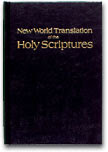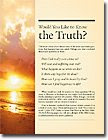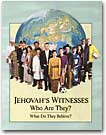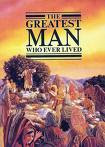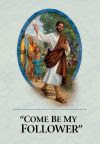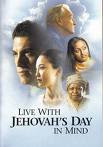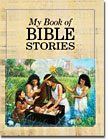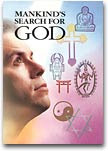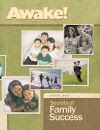First, let us look at all of the books of the Bible that talk about breasts.
In the book of Proverbs, there is a section that speaks of how we should view our wives. We should find our delight only in her. There should be no thoughts of other women at all. That is what the following Scripture is speaking of. In Proverbs 5, we find, "May your fountain be blessed, and may you rejoice in the wife of your youth. A loving doe, a graceful deer—may her breasts satisfy you always, may you ever be captivated by her love."-Proverbs 5:18-19
While Proverbs is not full of references to breasts, as some may argue, neither is Song of Solomon. In fact, the word breasts only appears 8 times throughout the entire book, although this is more then any other book. (Song of Solomon 1:13; 4:5; 7:3, 7-8; 8:1, 8, 10) The usage of the word is also not in a derogatory manner. Other books that mention breasts in a non-derogatory way are Job, Isaiah, Ezekiel, Hosea, and Nahum.-Job 3:12; Isaiah 60:16; 66:11; Hosea 2:2; 9:14; Nahum 2:7
One Scripture that many point to when arguing against the Song of Solomon is this one. "I found the one whom my soul has loved. I grabbed hold of him, and I would not let go of him, until I had brought him into my mother’s house and into the interior room of her that had been pregnant with me." (Song of Solomon 3:4) At this point, the Shulammite is dreaming of searching for her beloved. (Song of Solomon 3:1) She makes this statement after finding him. However, dreams tell us many things about the desires of a person. The Shulammite wants to bring the Shepherd boy into her mother's tent. Does this here mean that she wants to commit immorality?
No. In the ancient Middle East, marriage ceremonies went on for days. On the third day of the ceremony, the two newlyweds would enter into the tent of the mother of one of them. They would have intercourse, which would seal the marriage. Biblical evidence of this is found at Genesis 24:67 where we read: "After that Isaac brought her into the tent of Sarah his mother. Thus he took Rebekah and she became his wife."
A Bible commentary confirms this by saying, "The women in the East have all separate apartments, into which no person ever attempts to enter except the husband. We find Isaac bringing Rebecca into his mother's tent, when he made her his wife, Genesis 24:67. What is here related appears to refer to the third night of the nuptials." [1] People's ignorance of ancient customs has caused many misunderstandings throughout the world's history, some of them being deadly. How sad it would be if some ignorant person concluded that the Song of Solomon was mistakenly inserted into the Biblical canon and so chose to ignore this inspired book! Yes, research is important.
In the book of Ezekiel, chapter 23 is probably the most sexually explicit chapters in the entire Bible. This chapter says things like, "They became prostitutes in Egypt, engaging in prostitution from their youth. In that land their breasts were fondled and their virgin bosoms caressed." "She did not give up the prostitution she began in Egypt, when during her youth men slept with her, caressed her virgin bosom and poured out their lust upon her." "Then the Babylonians came to her, to the bed of love, and in their lust they defiled her." "There she lusted after her lovers, whose genitals were like those of donkeys and whose emission was like that of horses. So you longed for the lewdness of your youth, when in Egypt your bosom was caressed and your young breasts fondled."-Ezekiel 23:3, 8, 17, 20-21, see also Ezekiel 16:1-9
Should the book of Ezekiel be excluded from the Bible due to this? Not at all. There are many gems in this book that are well worth our attention. Song of Solomon is no different. When people read this book, they can only see the sexual statements in it. These need to open their minds and look at it in the light of its inspiration. What is God trying to tell us here?
The second thing that people need to understand when reading the Song of Solomon is the context of this book. Not the internal context but the external. When was it written? Where was it written? Why was it written?
Song of Solomon was written in the Middle East over three thousand years ago. The culture then was different then it is today. The people and their beliefs were different. The way they looked at a womans breasts was most different, too. Today breasts are looked at in more of a sexual manner. In Solomon's day, breasts were seen as no different then any other part of the body; they were not seen as overly sexual. There are other things in this short book that we cannot imagine saying--things that are not of a sexual nature.
Many of the times that the word "breasts" is used in this book, it is in describing the physical features of the Shulammite. Someone says of her in at least one instance: "Your breasts are like two fawns, twins of a gazelle." (Song of Solomon 7:3) If you continue reading that chapter, you find that the entire thing is about how beautiful she looks to the speaker. Yes, today few of us would be caught dead saying to a woman the above, but he says other things that are downright silly to use. Things like: "Your hair is like a flock of goats" "Your teeth are like a flock of sheep just shorn" "You waist is a mound of wheat" "Your neck is like an ivory tower".-Song of Solomon 4:1-2; 7:2, 4
Third, when we are mature enough to ignore the sexual statements in the book, what can we find that is beneficial on a spiritual level? Trust me, there are some.
The Song of Solomon answers questions such as these:
1. How should you appear when before someone of the opposite sex, whether you have a relationship with them or not?
2. How should you view the person you are with in relation to others of the opposite sex?
3. How should you act when it comes to sexual activity outside of marriage?
While these are questions that we should already know the answer to, we need to examine all aspects of God's inspired Word to get an all around picture and also because it is good to have a Godly reminder of such things as these. So:
How should you appear when before someone of the opposite sex, whether you have a relationship with them or not?
In what is possibly a dream, the Shulammite was awakened by a knocking at the door to her bedroom. It is the young man that she loves! He asks her to open the door. (Song of Solomon 5:2) Now, the young woman is naked, or partially so, because she is in bed. What does she do? She really wants to see him. Will she put herself in a position that will possibly cause them to commit immorality because she lets him in while her appearance is inappropriate? No.
"I have taken off my robe—must I put it on again? I have washed my feet—must I soil them again?" she asks him. (Song of Solomon 5:3) From there the man leaves her and she realizes how much she wants him. She gets up to find him but he is gone. She then goes around the city to find him, with no success. (Song of Solomon 5:4-6) We even find out that she had first put her clothes on because later she is attacked and the "watchmen" take her clothes off her.-Song of Solomon 5:7
So, the Shulammite is a noble example of how a man and a woman should act when they are indecent in appearance. Do not even allow opportunity for you to be alone in a situation like that. Like the Shulammite, no matter if you want to see this person, all efforts must be taken to keep any type of sexual sin from occurring.
Second: How should you view the person you are with in relation to others of the opposite sex?
Again, we can take a lesson from the Shulammite and her boyfriend. The Shulammite and her boyfriend a mutually exclusive towards one another. The thought of either of them being with another person, or even looking at another person, is the last thing in their minds. Throughout the entire Song, they both use words that show that they are exclusive, like "girl companion of mine" and "my dear one." (Song of Solomon 1:15; 4:16) Throughout the entire song, they constantly reaffirm their exclusivity towards one another, saying, "I am my beloved's, and my beloved is mine." (Song of Solomon 6:3, Young's Literal Translation) Of her, to prove his exclusive devotion, we read: "I am my beloved's, and on me is his desire."-Song of Solomon 7:10, YLT
The two characters of the Song are wonderful examples on how exclusive two Christians, even if they are only dating, should view one another. If you cannot be exclusive while dating, as these two were, how can you be that way in marriage?
Last: How should you act when it comes to sexual activity outside of marriage?
In the last chapter of the Song, we see a dialouge between the Shulammite and her brothers. They speak of a little sister who has not become fully developed, or mature. They say that if she is a door, they will build a wall in front of her. If she is a wall, they will decorate her with silver. The Shulammite then tells them that she is a wall. (Song of Solomon 8:8-10) They are speaking of sexual activity. If the little sister is a door, "opening up" for just any man, her brothers will be a wall towards her. They will not let her disgrace herself. If she is a wall, barring herself from any sexual immorality, then they will praise her. The Shulammite then tells them that she is a wall. She, happily, has kept herself pure and undefiled, even though there was constant pressure.-Song of Solomon 3:5; 8:4
Surely, there are many precious gems that we can get from this most beautiful of songs. (Song of Solomon 1:1) There is ample internal evidence that this book is indeed an integral part of the divine canon of Scripture. Further, people are aware of the prophetic parallels between the Shulammite and her beloved and Christ and Anointed Christians. (Song of Solomon 2:1) May you not neglect to look to this small yet important book in all of your dealings when it comes to members of the opposite sex. And remember, one of the most important passages at the end of the Song tells us how important love is in marriage--and in general:
"For love is as strong as death is, its jealousy as unyielding as the grave. It burns with a blazing fire, the mighty flame of Yah. Many waters cannot extinguish love nor can rivers wash it away."-Song of Solomon 8:6-7, The Free Bible
References
[1] The Adam Clarke Commentary



